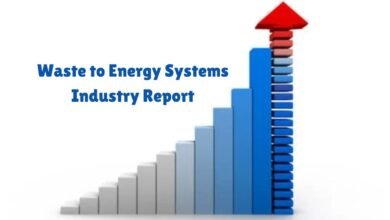Operating Systems Market Recovery and Impact Analysis Report – AMD, Microsoft, Advantech, Altera Corp
Operating Systems Market Recovery and Impact Analysis Report: Insights on AMD, Microsoft, Advantech, Altera Corp's roles and market trends.

The operating systems market is a critical component of the broader technology ecosystem. Operating systems (OS) serve as the foundational software that enables computer hardware to communicate effectively with application software, thereby forming the backbone of modern computing. This market encompasses a variety of OS platforms, including those used in personal computers, servers, mobile devices, and embedded systems.
Prominent players in the operating systems market include industry giants like AMD, Microsoft, Advantech, and Altera Corp. Each of these companies contributes uniquely to the market. Microsoft, for instance, dominates the personal computer OS space with its Windows platform, while AMD is renowned for its high-performance processors that support various operating systems. Advantech specializes in embedded and industrial computing solutions, and Altera Corp, now part of Intel, focuses on programmable logic devices that are integral to many specialized OS applications.
The significance of operating systems cannot be overstated, as they are integral to the functionality and efficiency of virtually all digital devices. They manage hardware resources, provide essential services for application software, and offer user interfaces that facilitate interaction with technology. As such, the health and evolution of the OS market are closely watched indicators of broader technological trends.
This article aims to explore the recent recovery of the operating systems market and analyze the impacts on key players like AMD, Microsoft, Advantech, and Altera Corp. By examining the factors driving market recovery and evaluating how these companies are adapting to new challenges and opportunities, we seek to provide a comprehensive overview of the current state and future prospects of the operating systems market.
Current Operating Systems Market Landscape
The operating systems market is undergoing significant transformations driven by technological advancements and shifting consumer demands. As of 2023, the market’s valuation stands at approximately $35 billion, with projections indicating steady growth over the next five years.
Key statistics and trends that highlight the current state of the market include:
- Microsoft’s Dominance: Microsoft continues to lead the operating systems market with a commanding market share of around 75%. Windows OS remains the cornerstone for both enterprise and consumer segments, thanks to its widespread adoption and continuous innovation.
- Emerging Competitors: While Microsoft’s dominance is undisputed, companies like AMD, Advantech, and Altera Corp are making notable strides. AMD’s advancements in hardware integration have bolstered its position in the market, especially in high-performance computing environments.
- Advantech’s Industrial Focus: Advantech is carving out a niche in industrial applications. Its focus on IoT and edge computing solutions is driving demand in sectors such as manufacturing and healthcare.
- Altera Corp’s FPGA Integration: Altera Corp, now a part of Intel, is leveraging FPGA (Field-Programmable Gate Array) technology to offer customizable solutions, enhancing performance and efficiency in various computing environments.
Additionally, the market is witnessing a shift towards open-source operating systems. Linux-based systems are gaining traction, particularly in server environments and cloud computing, where flexibility and customization are paramount.
Another trend to watch is the rise of mobile operating systems. Android and iOS continue to dominate the mobile OS market, but there is growing interest in alternative systems that offer unique features or cater to specific user needs.
Overall, the operating systems market is characterized by intense competition and rapid innovation. Companies that can adapt to emerging trends and meet evolving consumer demands are likely to thrive in this dynamic landscape.
Impact of COVID-19 on the Market
The COVID-19 pandemic has had a profound effect on the operating systems market, reshaping both supply chains and consumer behavior. As the world grappled with the health crisis, industries faced unprecedented disruptions, prompting a reevaluation of operational strategies and market dynamics. The shift towards remote work, in particular, has notably influenced market trends, affecting key players such as AMD, Microsoft, Advantech, and Altera Corp.
One of the primary challenges during the pandemic was the disruption in supply chains. Manufacturing facilities faced closures, delays, and reduced capacities, leading to significant bottlenecks. These disruptions impacted the production and distribution of hardware components essential for operating systems, causing delays in product launches and increased costs.
Consumer demand also underwent a significant transformation. With a large portion of the global workforce shifting to remote work, there was a heightened need for reliable and efficient operating systems. This surge in demand was particularly beneficial for companies like Microsoft, whose Windows operating system became even more integral to daily business operations. Microsoft’s cloud services also saw an uptick, driven by the necessity for remote collaboration tools.
AMD experienced a mixed impact. On one hand, their processors and graphics cards saw increased demand due to a rise in personal computing and gaming. However, supply chain issues led to shortages and higher prices, affecting their ability to fully capitalize on this demand surge.
Advantech, known for its industrial computing solutions, faced challenges in sectors like manufacturing and transportation, which experienced significant slowdowns. Conversely, the healthcare sector’s rapid digitization during the pandemic provided new opportunities, leading to a shift in their market focus.
Altera Corp, now part of Intel, also faced supply chain constraints but benefited from the increased demand for data center solutions and network infrastructure, essential for supporting the global shift to remote working environments.
Key Points:
- Significant disruption in supply chains affecting production and distribution.
- Increased consumer demand for reliable and efficient operating systems due to remote work.
- Mixed impacts on AMD with heightened demand offset by supply constraints.
- Shift in Advantech’s market focus towards healthcare digitalization.
- Altera Corp benefited from the demand for data center solutions.
Strategies for Recovery Operating Systems Market
The operating systems market has faced significant challenges due to the global pandemic. Leading companies have formulated multifaceted strategies to navigate these difficulties and ensure recovery. Below are the key approaches employed by major industry players such as Microsoft, AMD, Advantech, and Altera Corp.
Microsoft:
- Software Updates: Microsoft has accelerated the release of critical software updates to enhance security and performance. This proactive approach ensures that users have access to the latest features and protections.
- Cloud Services: Emphasizing the importance of cloud computing, Microsoft has expanded its Azure platform. By offering scalable and flexible cloud solutions, they support businesses in maintaining operations remotely.
AMD:
- New Processor Releases: AMD has focused on launching innovative processors that offer superior performance and energy efficiency. These new releases address the growing demand for high-performance computing in both consumer and enterprise markets.
- Strategic Partnerships: Collaborating with key industry players, AMD has strengthened its market position through partnerships that enhance product integration and distribution.
Advantech:
- IoT Solutions: Advantech has invested in developing comprehensive IoT (Internet of Things) solutions. These innovations facilitate the seamless integration of devices and systems, enabling efficient data collection and analysis.
- Remote Management: By enhancing remote management capabilities, Advantech supports businesses in monitoring and controlling their operations from anywhere, thus ensuring business continuity.
Altera Corp:
- FPGA Technology: Altera Corp has advanced its FPGA (Field-Programmable Gate Array) technology, offering solutions that provide flexibility and performance for specialized applications. These advancements cater to the needs of industries such as telecommunications and automotive.
- R&D Investments: Continuing to invest in research and development, Altera Corp ensures that its technology remains at the forefront of innovation, driving future growth and market recovery.
Technological Innovations Driving Market Growth
The operating systems market is experiencing significant recovery and growth, largely driven by several technological innovations. Key advancements in artificial intelligence (AI), machine learning (ML), cloud computing, and the Internet of Things (IoT) are reshaping the landscape and offering new opportunities for market players such as Microsoft, AMD, Advantech, and Altera Corp.
AI and ML have revolutionized the way operating systems function, introducing smarter, adaptive, and more efficient solutions. These technologies enable operating systems to optimize resource management, improve security protocols, and offer personalized user experiences. Microsoft, for instance, has integrated AI and ML capabilities into its Windows operating systems, enhancing predictive maintenance, threat detection, and user productivity features.
Cloud computing is another critical area propelling market growth. The shift towards cloud-based operating systems allows for greater flexibility, scalability, and cost-efficiency. Companies like Advantech are leveraging cloud infrastructure to provide robust and reliable OS solutions tailored for industrial applications. The cloud’s ability to support remote operations and real-time data processing makes it an indispensable component in modern OS development.
The proliferation of IoT devices has also spurred demand for specialized operating systems that can handle the unique requirements of interconnected devices. Altera Corp has made significant strides in this domain, creating OS solutions that offer seamless integration, low latency, and high security for IoT networks. These advancements ensure that IoT systems can operate efficiently and securely, fostering further market expansion.
Here are some key technological innovations driving the growth of the operating systems market:
- AI and ML integration for smarter, more efficient operating systems
- Cloud computing for scalable, cost-effective OS solutions
- Enhanced security protocols using advanced AI algorithms
- Specialized OS solutions for IoT devices with low latency and high security
- Predictive maintenance and user productivity enhancements in OS platforms
These technological advancements not only contribute to the recovery of the operating systems market but also pave the way for sustained growth and innovation in the years to come.
Consumer and Enterprise Demand
The operating systems market has witnessed a significant shift in demand dynamics, driven primarily by the increased necessity for secure and robust solutions in remote work environments. As both consumers and enterprises adapt to new work models, the emphasis on reliable operating systems has never been more pronounced. The surge in remote work has underscored the importance of security, efficiency, and seamless integration across various devices and platforms.
Several key players in the market have responded to these evolving demands with innovative products and services:
- AMD: Known for its high-performance processors, AMD has integrated advanced security features into its operating systems to cater to the need for robust, secure environments. Their solutions support seamless multitasking and enhanced data protection, crucial for remote work setups.
- Microsoft: With Windows 10 and the newly introduced Windows 11, Microsoft has focused on boosting productivity and security. Features such as Windows Hello for biometric authentication and integrated Microsoft Defender Antivirus provide users with a secure and efficient operating system suitable for both personal and professional use.
- Advantech: Specializing in industrial and embedded computing, Advantech offers operating systems designed for IoT and edge computing applications. Their solutions ensure real-time processing and robust security measures, meeting the demands for reliable and secure operations in enterprise environments.
- Altera Corp: Now part of Intel, Altera Corp’s focus on FPGA-based systems provides customizable and secure operating solutions. These systems are particularly suited for industries requiring high reliability and performance, such as telecommunications and data centers.
These advancements reflect a broader trend in the market toward enhancing the security and efficiency of operating systems, addressing the critical needs of both consumers and enterprises in an increasingly digital and remote-oriented world.
Market Forecast and Future Trends
The operating systems market is poised for significant growth over the next few years, driven by continuous advancements in technology and increasing demand for robust, scalable solutions. Analysts predict a steady compound annual growth rate (CAGR) of approximately 6.5% from 2023 to 2028. This expansion is fueled by several emerging trends and key factors shaping the industry’s trajectory.
Emerging Trends
Several trends are expected to influence the operating systems market:
- Cloud Computing Integration: The shift towards cloud-based solutions is accelerating, with businesses increasingly adopting cloud-native operating systems to enhance flexibility and scalability.
- Artificial Intelligence (AI) and Machine Learning (ML): The integration of AI and ML capabilities into operating systems is becoming more prevalent, enabling intelligent automation and improved user experiences.
- Edge Computing: As the demand for real-time processing grows, operating systems designed for edge computing environments are gaining traction, particularly in sectors like IoT and autonomous vehicles.
- Security Enhancements: With rising cybersecurity threats, there is a heightened focus on developing operating systems with advanced security features to protect sensitive data and ensure compliance.
- Open-Source Adoption: The open-source movement continues to gain momentum, with more organizations opting for open-source operating systems to reduce costs and foster innovation.
Challenges
Despite the positive outlook, the operating systems market faces several challenges:
- Compatibility Issues: Ensuring seamless compatibility across diverse hardware and software ecosystems remains a significant hurdle.
- Rapid Technological Changes: Keeping pace with rapid advancements in technology requires continuous innovation and substantial investment.
- Cybersecurity Threats: The increasing sophistication of cyber-attacks necessitates ongoing efforts to enhance security measures within operating systems.
Company Positioning
Key players such as AMD, Microsoft, Advantech, and Altera Corp are well-positioned to capitalize on these trends and navigate the challenges:
- AMD: With its strong focus on high-performance computing and graphics, AMD is leveraging its expertise to develop operating systems that cater to the needs of modern applications.
- Microsoft: As a market leader, Microsoft continues to innovate with its Windows operating system, integrating AI, cloud capabilities, and enhanced security features.
- Advantech: Advantech’s emphasis on industrial IoT and edge computing positions it favorably to address the growing demand for specialized operating systems in these areas.
- Altera Corp: Altera Corp’s advancements in programmable logic devices and their integration with operating systems are driving growth in sectors such as telecommunications and data centers.
Overall, the operating systems market is set to experience robust growth, driven by technological advancements and the strategic positioning of key industry players. The ability to adapt to emerging trends and address potential challenges will be crucial for sustained success in this dynamic landscape.
- Building Secure Software: How to Integrate Security Into Development Lifecycles
- Cloud Business Phone Systems Market to Witness Growth Acceleration
- Waste to Energy Systems Industry Report
Conclusion
The recovery of the operating systems market is a testament to its resilience and critical importance in the digital landscape. The pandemic undoubtedly challenged the industry, causing disruptions and necessitating rapid adaptations. However, the market’s response showcased its robust capacity for innovation and strategic pivots.
Key players like AMD, Microsoft, Advantech, and Altera Corp have been instrumental in driving the market’s recovery. Their strategic initiatives, including advancements in hardware compatibility, software updates, and enhanced cybersecurity measures, have not only mitigated the impact of the pandemic but also set a foundation for future growth. The integration of AI and machine learning into operating systems has further exemplified the industry’s commitment to evolving with technological advancements.
As we look forward, the operating systems market is poised for continued growth and innovation. The emphasis will remain on enhancing user experience, improving security features, and ensuring seamless integration with emerging technologies. Key trends to watch include the rise of cloud-based operating systems, the proliferation of IoT devices, and the ongoing evolution of AI-driven functionalities.
For stakeholders and industry participants, understanding these dynamics is crucial for navigating the landscape effectively. The following key takeaways summarize the essential points discussed:
- The operating systems market has shown significant resilience, adapting quickly to challenges posed by the pandemic.
- Major companies like AMD, Microsoft, Advantech, and Altera Corp have been pivotal in driving recovery through strategic innovations.
- Advancements in AI and machine learning are increasingly integrated into operating systems, enhancing functionality and user experience.
- Future growth will be driven by trends such as cloud-based operating systems, IoT integration, and enhanced cybersecurity measures.
- Staying informed about industry developments and technological advancements is essential for stakeholders to remain competitive.
The operating systems market’s trajectory underscores its indispensable role in the technology ecosystem, promising sustained growth and innovation in the years to come.



